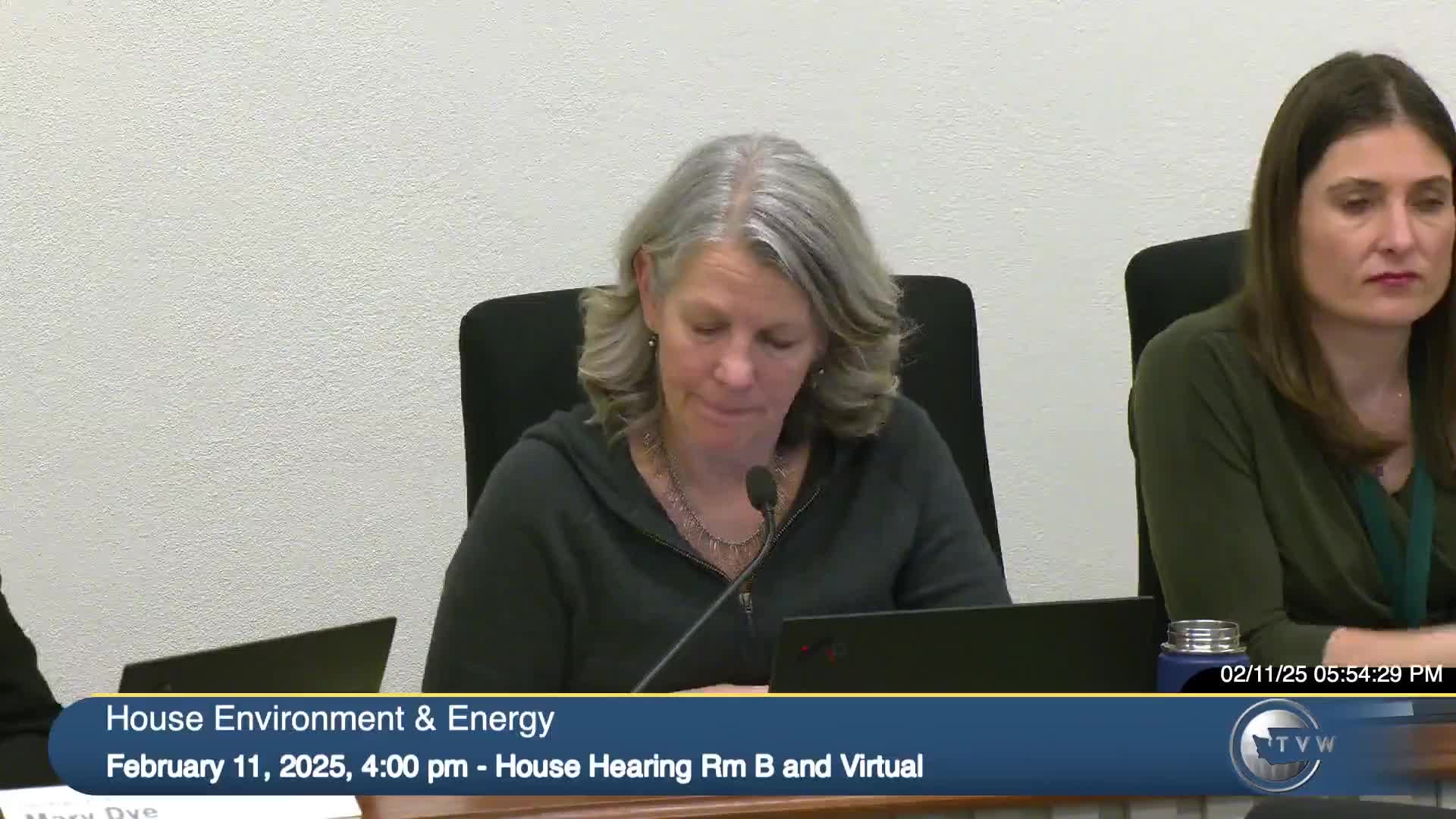Article not found
This article is no longer available. But don't worry—we've gathered other articles that discuss the same topic.
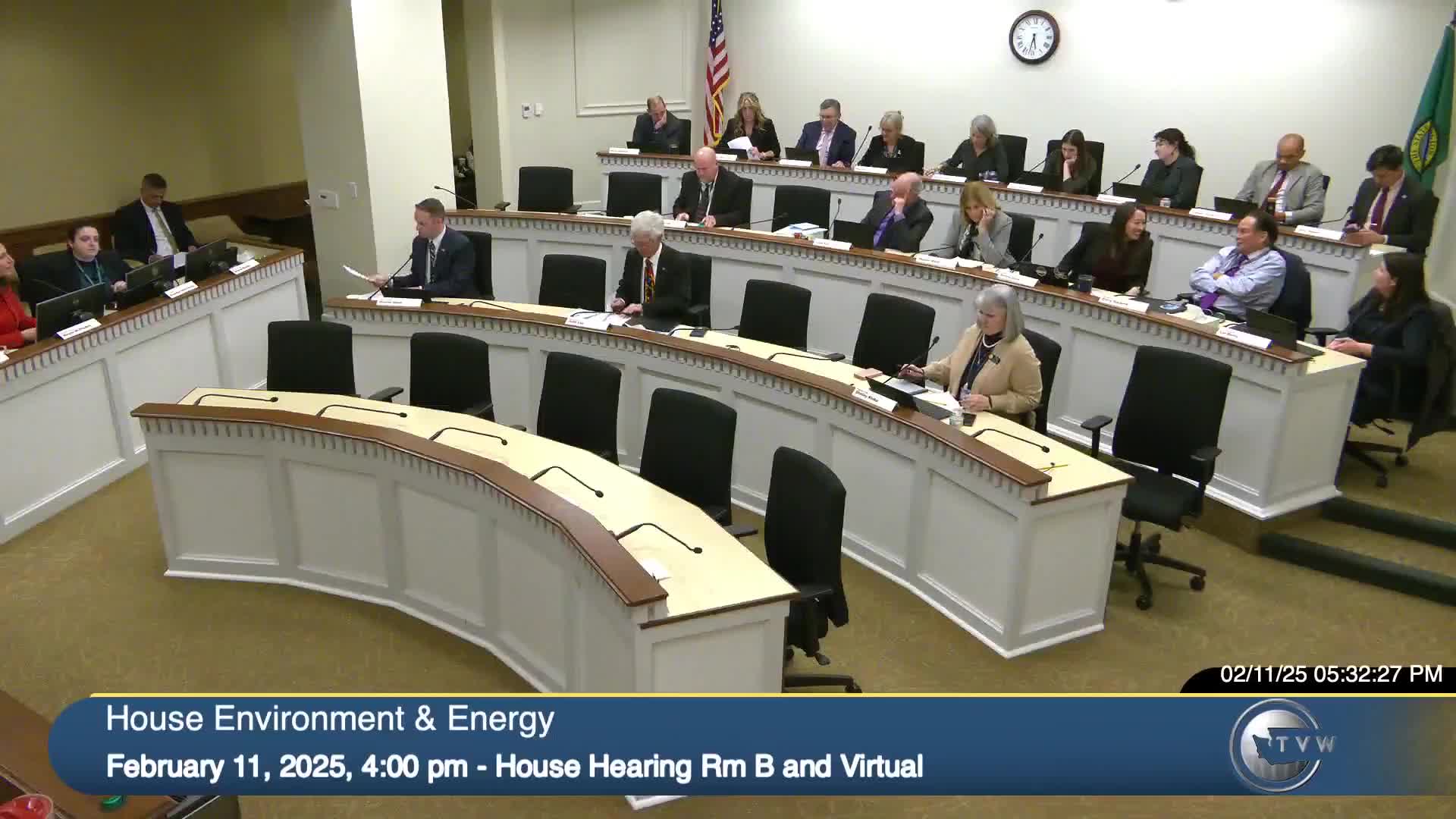
Committee holds hearing on HB 1819 to encourage reconductoring and speed permitting for transmission upgrades
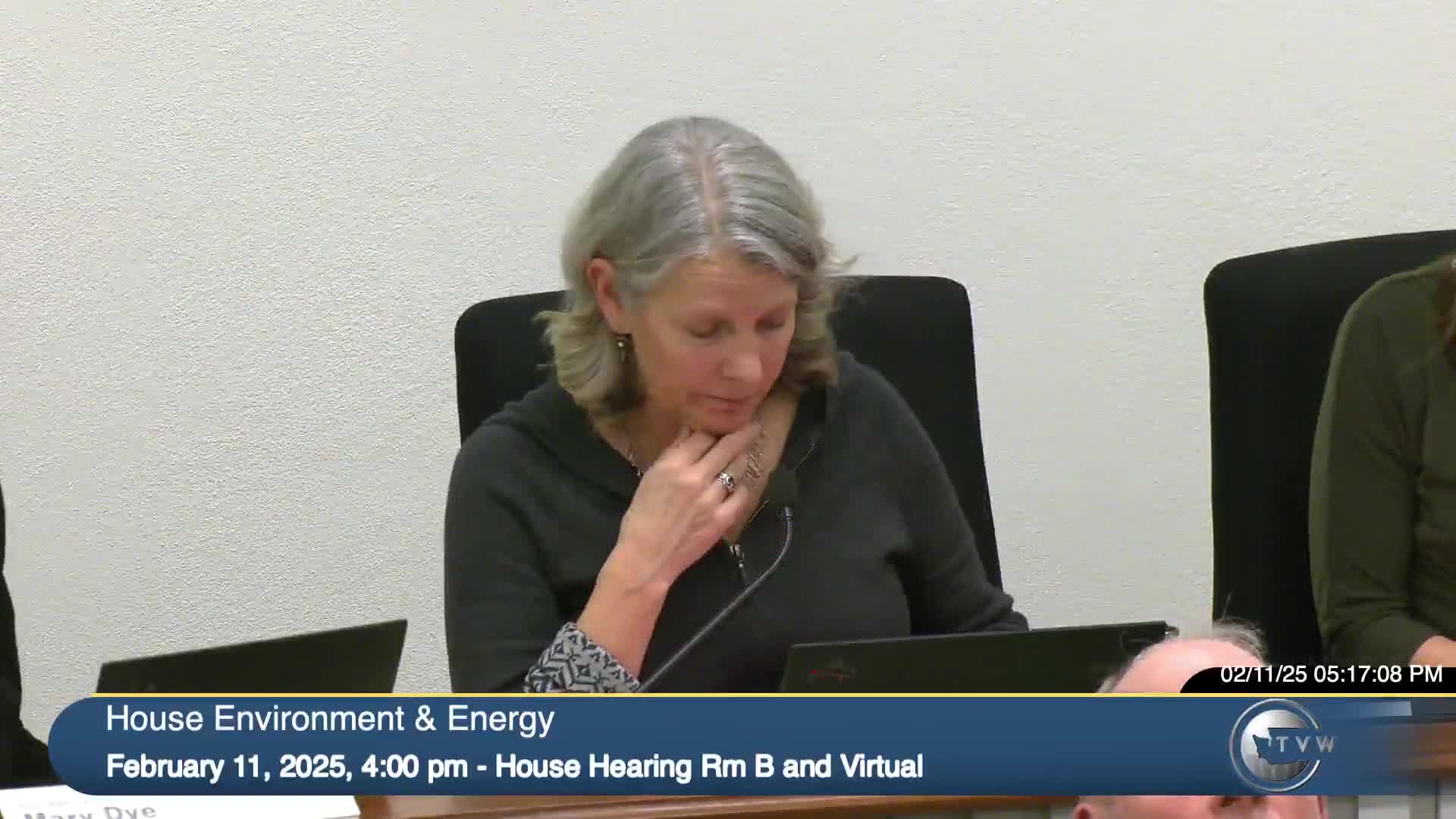
Committee rejects amendment but reports House Bill 1303 on SEPA and environmental justice, 12-7
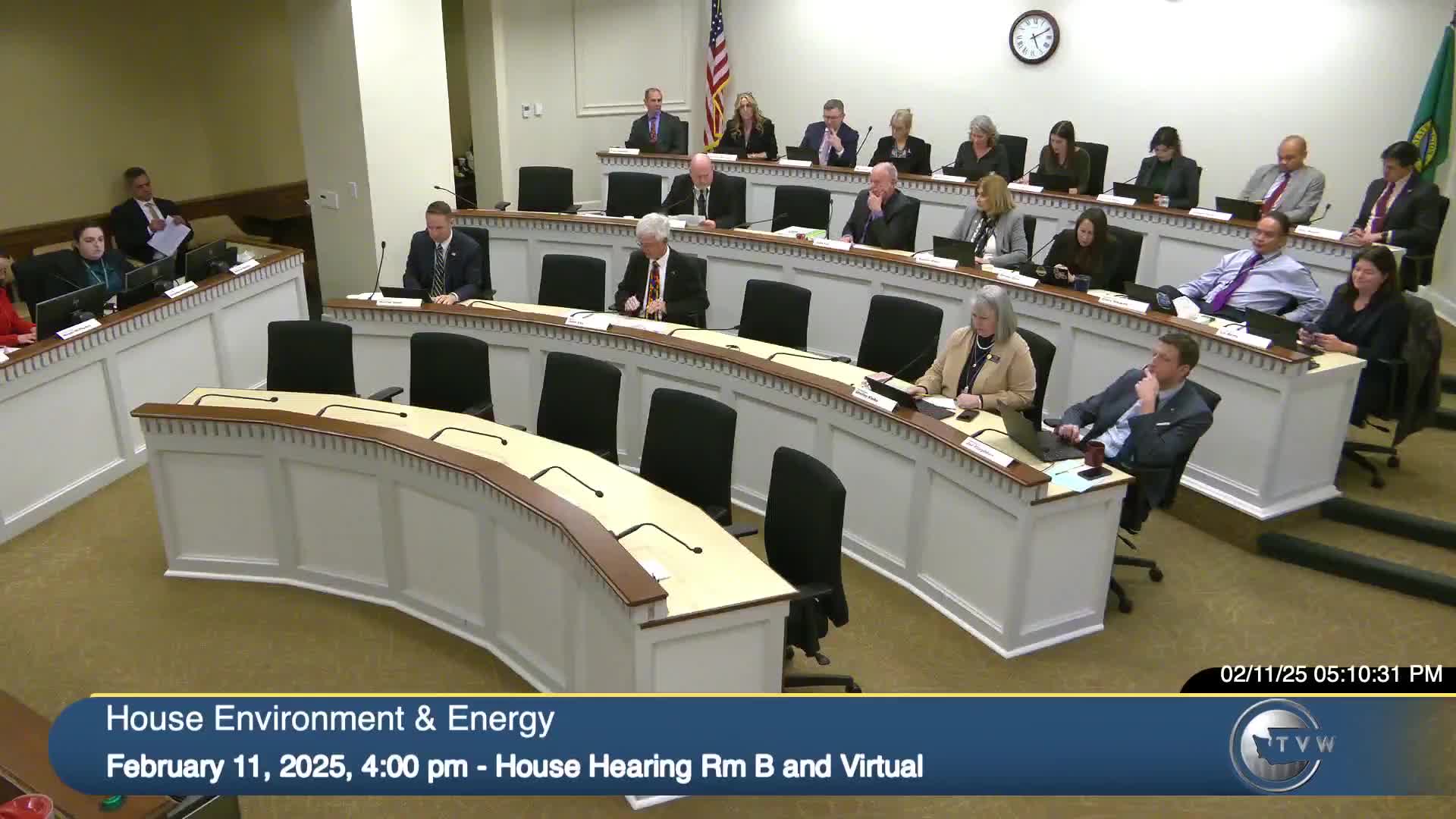
Committee backs substitute House Bill 1071 requiring recycling needs assessment, 19-0
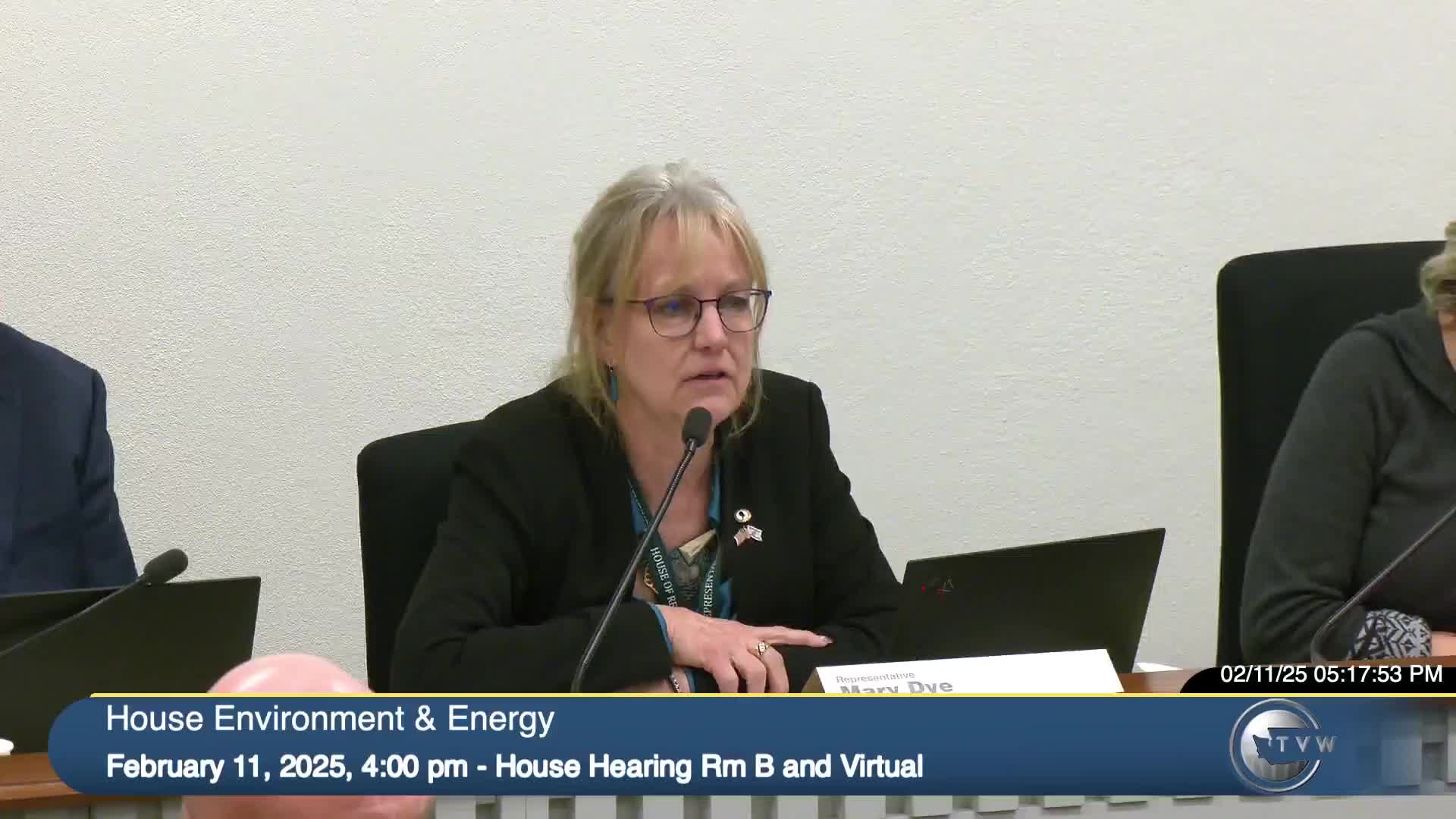
Committee reports substitute House Bill 1150 to expand recycling access, 12-7
